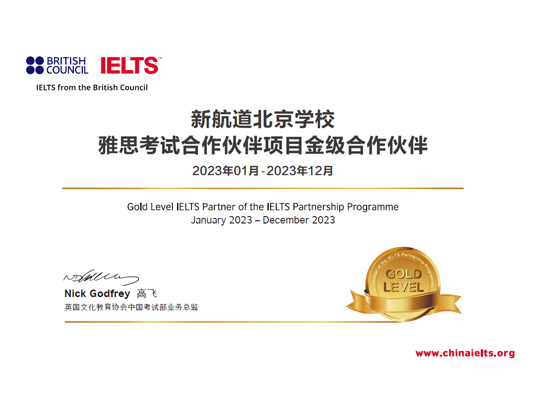当前位置:首页 > 雅思频道 > 雅思阅读 > 雅思阅读精品材料:阿里上市 大批员工有望成为百万富翁
发布时间:2014-09-22 关键词:雅思阅读精品材料:阿里上市 大批员工有望成为百万富翁
摘要:雅思阅读精品材料:今天为大家带来一则双语新闻,关于阿里巴巴上市的,供大家阅读。雅思阅读精品材料:【双语新闻】阿里上市 大批员工有望成百万富翁
雅思阅读精品材料:今天为大家带来一则双语新闻,关于阿里巴巴上市的,供大家阅读。
雅思阅读精品材料:【双语新闻】阿里上市 大批员工有望成百万富翁
过去15个月来,阿里巴巴公司授予员工和某些外部人士的股份不仅数量巨大,而且蕴含着难以置信的收益。该公司的大批员工有可能在一夜之间成为百万富翁。
It’s widely acknowledged that Wall Street wrote the book on sumptuous compensation—some would say, outrageous overcompensation. It’s long been a wondrous world where high-ranking people get paid on par with owners and entrepreneurs who risk their own money, and win. The great thing about working on Wall Street is that you can get fabulously rich without risking your own money.
Now, an Internet company from China is showing Wall Street how it’s done. Alibaba is garnering all kinds of superlatives from analysts and pundits for its total dominance of China’s explosive e-commerce market, its fabulous growth rate, and now, the size of its forthcoming IPO, potentially the biggest in tech history.
Less noticed is another feature that makes Alibaba a source of wonder: Its practice of issuing absolutely gigantic, incredibly lucrative stock grants to employees and chosen outsiders.
The details are revealed in its most recent IPO prospectus, FORM F-1/A, filed on September 5. In a table on page 154, the company lists its equity grants to employees, directors, and groups of selected outsiders, including vendors, starting in mid-2011. Let’s examine the most recent grants, starting on June 30, 2013. They fall into two categories: restricted stock and restricted stock units, or RSUs, which can be exchanged for ordinary shares as they vest, and equity options.
Over the last 15 months, Alibaba has made 12 grants of restricted stock and RSUs totaling 68.5 million units. Those units vest over four years; each year, employees receive one-fourth of their grant in regular shares. So what would those grants be worth if they all vest? Alibaba has stated that its shares will debut at a price somewhere between $60 and $66 a share, the exact figure to be chosen just before the offering, which is expected to take place on September 19. At $66, the restricted stock grants would carry a total value of $4.5 billion.
It’s probable that Alibaba shares will debut at a price far above $66, since demand for the offering from institutional investors has been extremely strong. The increase could take the form of a big pop following the opening. Or the offering price could be re-priced upwards and then make a smaller pop. For simplicity, let’s assume the offering is priced at $66 and that the shares jump 25%, to $82.50. In that scenario, the restricted stockgrants would be worth $5.65 billion.
Alibaba is also generously rewarding its employees with stock options. Since June of last year, it has issued eight option grants for a total of 21.8 million shares. At $66, those options would be worth $540 million. If Alibaba pops to $82.50 at the opening, the options would have a value of $831 million.
So the total, in-the-money value of those equity grants, over the last 15 months alone, is almost $6.5 billion, assuming Alibaba’s stock jumps to $82.50. Naturally, not all the restricted stock and options will eventually turn into shares. Employees will leave and get fired before their grants fully vest. But given the gigantic wealth employees are accumulating each year they stay, the incentive to remain at Alibaba is tremendous. Hence, we can assume that the overwhelming bulk of the grants will eventually become Alibaba shares. Not all the grants are going to employees: According to a footnote in the filing, around 17% of the restricted stock units as of March 31 were held by outsiders.
We’ll make a quick estimate target=_blank class=infotextkey>estimate that employees now hold around 85% of those grants. So the restricted stock and options held by employees would be worth $5.5 billion if Alibaba opens with a pop, subject, of course, to vesting. Alibaba has 22,000 employees. In the past 15 months, the company has granted them what amounts to $250,000 in stock per person. Keep in mind that the average worker in China earns $10,000 a year and a typical executive makes $85,000. It’s likely that Alibaba’s top 1,000 employees have received the lion’s share of these grants—that’s where the big money always goes. If they’re receiving the rights to nine shares in ten, they’re in the money on $5 billion in stock, or $5 million apiece.
If you’re pondering whether to buy Alibaba’s shares, you should take note of management’s own assessment of its value in recent months. In June 2013, the Alibaba brass reckoned its stock was worth $18.50 a share—the strike price it set on 7.6 million options. At the end of 2013, the number was $22. Even in September, it was issuing options based on a share valuation of $59. The management that just valued their ownstock at $59 is asking the public to pay a lot more. So proceed with caution.
In fact, Alibaba has learned a trick from Wall Street. Page 7 of the prospectus describes something called the Directed Share Program. It grants “certain of our directors, executive officers, business associates” (the list goes on) the right to purchase 21 million shares, not at a market price, but at the offering price.
We all know that Wall Street benefits immensely when an IPO jumps at the opening, since grateful institutional investors reward the banks with rich commissions. The Directed Share Program is also designed to profit from a pop: If Alibaba’s shares jump from an offering price of $66 to $82.50, the plan’s beneficiaries will make almost $350 million overnight. It’s a great spectacle indeed, the two Great Compensators working together.
华尔街人士的薪资之高众所周知,而且有人会说,实在高得离谱。长期以来,华尔街都是一个创造神奇的世界,一众高管挣得钵满瓢满,成为人生大赢家,一点都不输给那些用自有资金冒险的企业所有人和创业者。在华尔街拼搏的妙处是,人们不仅可以大发其财,而且还不用拿自己的钱去冒险。
现在,一家来自中国的互联网公司正在向华尔街展示这个过程。得益于其在爆发式增长的中国电子商务市场中的主导地位、极高的成长率以及可能是科技行业有史以来规模的IPO,阿里巴巴公司(Alibaba)正在赢得分析师和评论人士的一致盛赞。
阿里巴巴还有一个不那么显眼但同样可以产生奇迹的特点,那就是该公司把大量有高额利润可图的股票赠送给了员工和某些外部人士。
阿里巴巴9月5日提交的F-1/A格式招股说明书,详尽披露了该公司的赠股计划。在第154页,该公司用表格形式罗列了2011年中期至今授予员工、董事以及供应商等外部人士的股份。让我们看一看阿里巴巴最近的一些授股活动(从2013年6月30日开始)。它们可分为两类:受限制股份、受限股票单位(RSU,授予后可以转换为普通股,以下与受限制股份统称为受限股),以及期权。
过去15个月来,阿里巴巴共授股12次,赠送的受限股总计6850万股,这些股份将在4年内授予完毕,阿里巴巴员工每年将以普通股形式获得四分之一的所授股份。那么,授股完毕后,这些股份将价值几何呢?阿里巴巴已将发行价定在60-66美元之间,按照9月19日上市的计划,具体价格将在前一刻确定。按66美元计算,这些受限股的总价值为45亿美元。
上市首日,阿里巴巴的股价可能远远超出66美元,原因是机构投资者对这只股票的需求极为旺盛。该公司股价可能大幅高开。阿里巴巴也可能上调发行价,从而使上市当天的涨幅小一些。为简单起见,姑且假设发行价为66美元,当天上涨25%,达到82.50美元。在这种情况下,上述受限股的价值为56.5亿美元。
阿里巴巴在授予员工期权方面也很慷慨。去年6月份以来,该公司分8次向员工授予期权2180万股。按每股66美元计算,这些期权的价值为5.40亿美元。如果上市当天股价能涨到82.50美元,这个数字将达到8.31亿美元。
将二者相加,同时假设阿里巴巴的股价涨到82.50美元,光是过去15个月授予的受限股和期权的价值就几乎达到65亿美元。当然,并不是所有的受限股和期权最终都会转换成股票。在它们授予完毕前会有员工离职或被解雇。但考虑到每年都能积累大量财富,阿里巴巴员工留下来的动力大。因此,我们可以认为这些受限股和期权中的绝大多数最终都会变成阿里巴巴的股票。此外,并不是所有受限股都到了员工手里。招股说明书中的一处脚注显示,截至3月31日,外部人士持有约17%的受限股和期权。
姑且认为员工持有85%的受限股和期权。那么,如果阿里巴巴上市当天大涨,员工手里的这些股份和期权的价值将达到55亿美元。当然,这还要看具体的授予情况。阿里巴巴有2.2万名员工。15个月来,他们平均每人得到了价值25万美元的受限股和期权。要知道,中国公司一名普通员工的年收入为1万美元,一名普通高管的年收入为8.5万美元。得到绝大部分股份和期权的可能是阿里巴巴最重要的1000名员工——这部分人总是的受益者。假设他们拿到了其中的90%,就相当于得到了50亿美元的股票,平均每人500万美元。
如果大家正在考虑是不是要买阿里巴巴的股票,那就应该看看最近该公司管理层的自我价值评估。2013年6月,阿里巴巴高层对该公司股票的估价为18.50美元——这是760万股股票期权的行权价格。2013年底,他们所估的价格为22美元。今年9月份,该公司发行期权时依据的每股价值为59美元。按照这样的估价,阿里巴巴管理层打算从公众那里以远远超过以往的股票定价水平筹集资金。因此投资者应谨慎为妙。
实际上,阿里巴巴已经从华尔街那里学了一招。招股说明书的第7页上提到了定向配股计划(Directed Share Program),也就是所谓的“亲友股”。阿里巴巴给予“部分董事、管理人员、生意伙伴(等各个方面)”以发行价而非市场价购买公司2100万股的认购权。
我们都知道,上市当天大幅高开的股票能让华尔街大赚特赚,原因是心怀感激之情的机构投资者会回馈给这些投资银行高额佣金。发行“亲友股”的目的也是从上市首日的高开行情中获利。如果阿里巴巴的股价从66美元上涨到82.50美元,“亲友股”受益人将在一夜之间获利近3.50亿美元。在两大获利源泉的共同作用下,本次IPO的受益者将实实在在地大赚一笔。
雅思阅读精品材料、雅思阅读材料、雅思阅读备考资料请继续关注北京新航道雅思阅读>>

